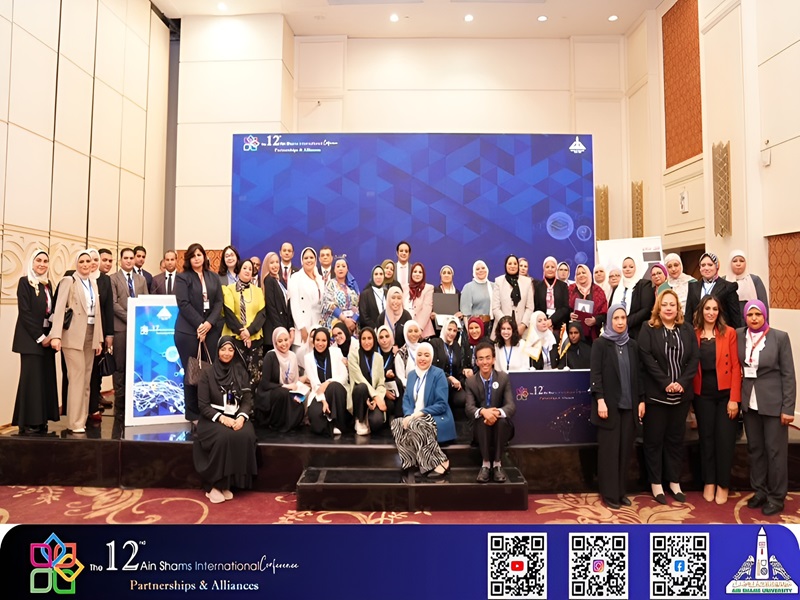Women's Empowerment Sector in light of partnerships from various sectors within the activities of the 12th Ain Shams University Annual Conference
A session for the women’s empowerment sector in light of partnerships from various sectors within the activities of the twelfth annual conference at Ain Shams University under the title “Partnerships and Alliances” sponsored by Prof. Mohamed Diaa Zain El-Abedeen, President of Ain Shams University, and Prof. Ghada Farouk, Vice President of the University for Community Service and Environment Development Affairs.
Prof. Hend El-Helaly, Executive Director of the Anti- Violence against Women Unit at the University, explained the unit’s role in supporting students through the programs, workshops, training and convoys that the unit provides by supporting the university administration in providing a safe educational environment.
The first session was entitled “The Role of Society in Protecting Women from Electronic Crimes” and was chaired by Prof. Yasser Gadallah, Dean of the National Institute for Intellectual Property at Helwan University, Counselor Hebat Allah Al-Gendi, Director of the Women’s Affairs Unit, Administrative Prosecution Authority, and Dr. Siham Jibril, Rapporteur of the Governorates Committee of the Council. National Women's National.
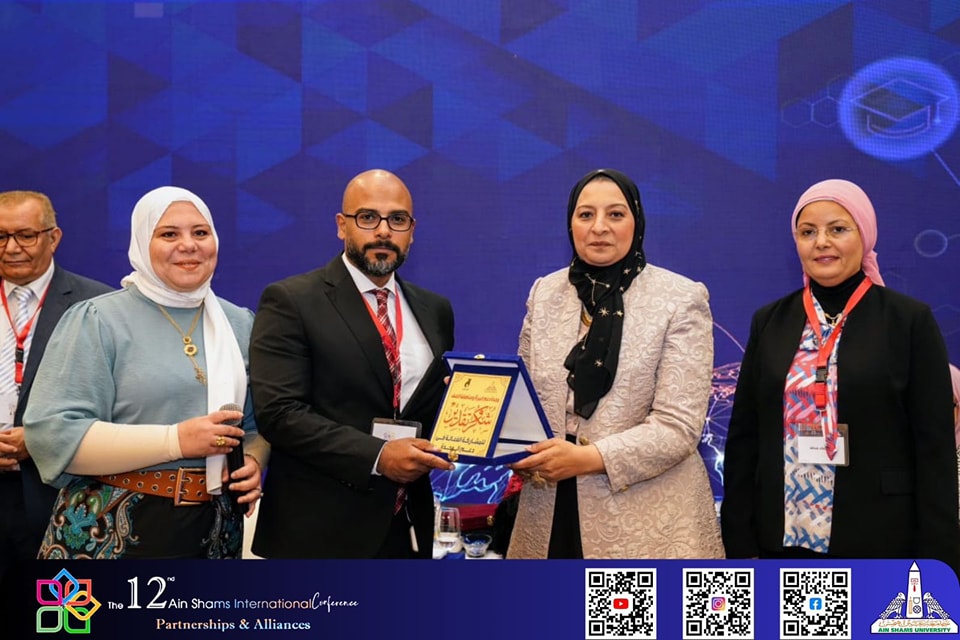 |
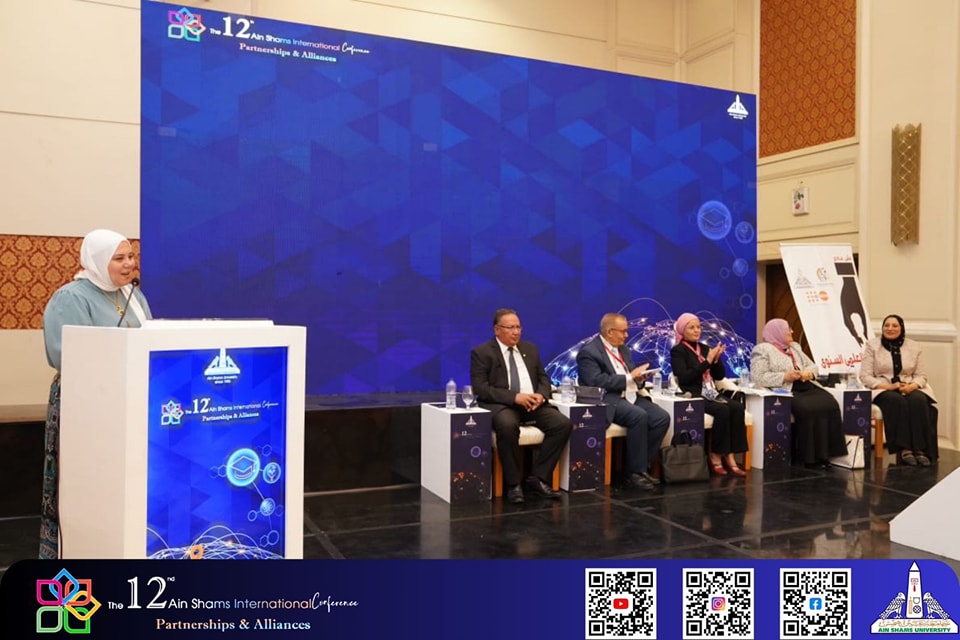 |
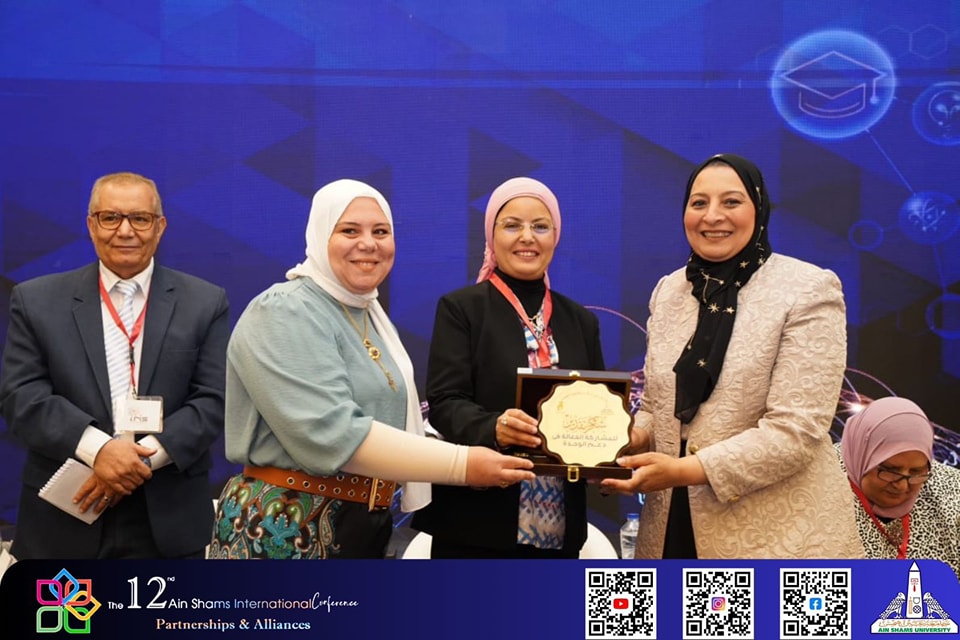 |
||
Counselor Mohamed Samir, the official spokesman for the Administrative Prosecution Authority, lectured and talked about the role of media coverage in electronic crimes (negative or positive), and Prof. Dina Shukri, Head of the Forensic Medicine Department at the College of Military Medicine, spoke about the role of forensic medicine in electronic violence cases ( Video conference technology), Prof. Walid Rashad, Professor of Sociology, Center for Social and Criminal Research, Cybercrimes and Gender Issues, Dr. Mohamed Mohamed Abdel Fattah, information security expert from Fonti Net, talked about electronic blackmail, its types and how to deal with it, Dr. Amira Hakim, member of the committee. Governorates: The National Council for Women and spoke about electronic blackmail from a societal perspective. Rosa Luger, an international human rights activist and founder of the Organization for the Protection of Women in Austria, spoke about development proposals for laws to protect women in the electronic labor market (video conferencing technology).
While the second session is entitled “Is artificial intelligence possible for women within the framework of partnerships and the labor market?”
Chaired by: Prof. Safaa Ahmed Mohamed Shehata, Dean of the Faculty of Education, Ain Shams University, Prof. Ekbal Al-Samalouti (session moderator), Professor of Sociology and founder of the Future Eve Association, Prof. Mohamed Al-Khuzami Aziz, Professor of Geographic Information Systems and Dean of the Faculty of Social Studies, Former President of Galala University.
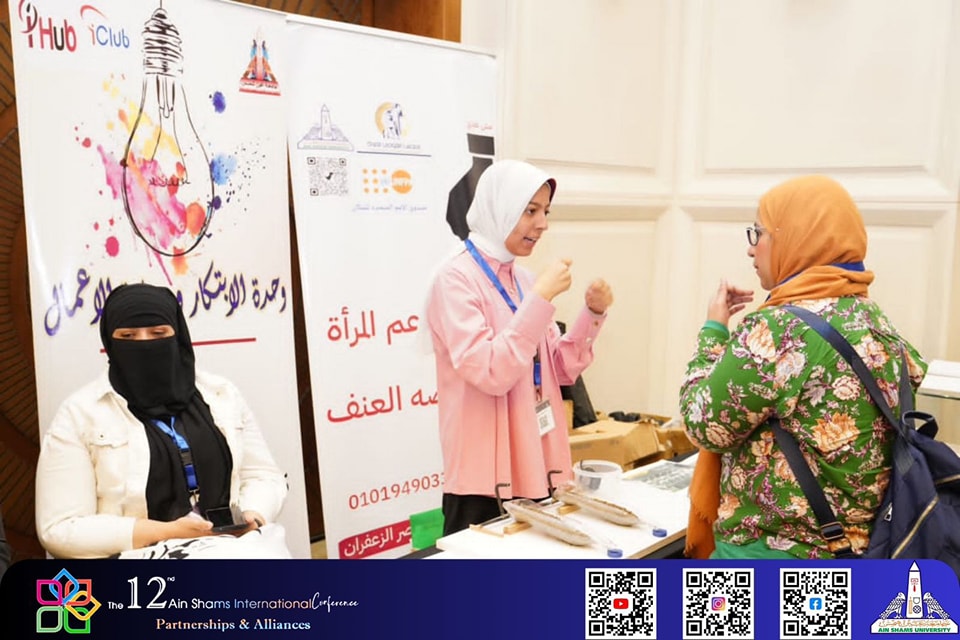 |
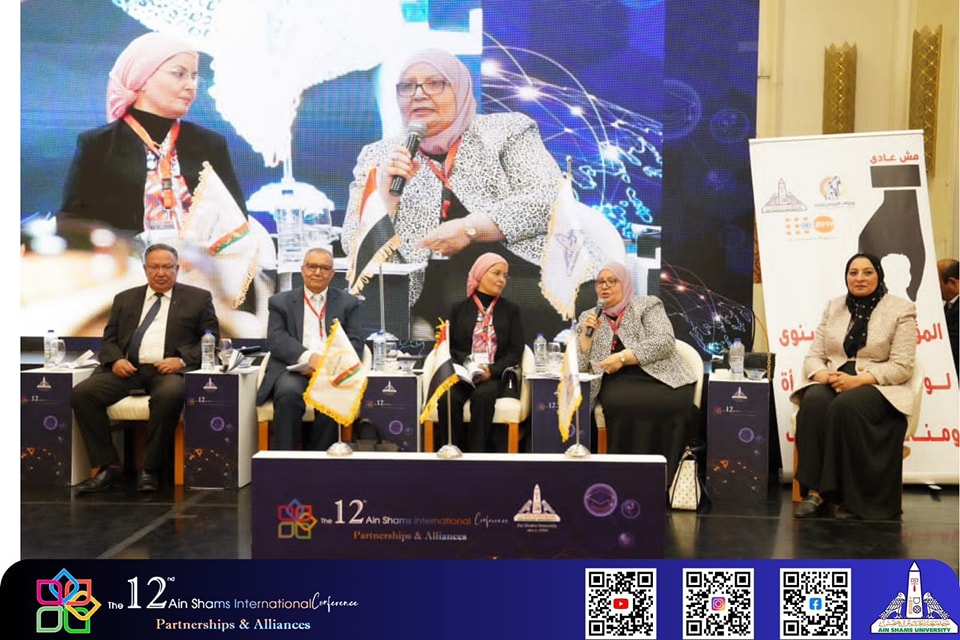 |
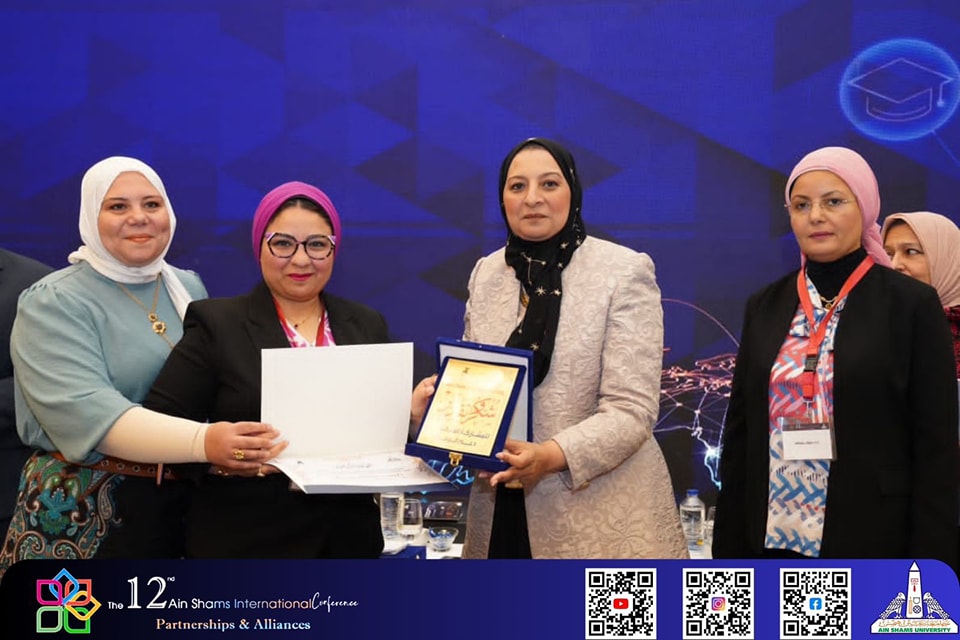 |
||
Prof. Ismail Youssef, Professor of Geographic Information Systems at Menoufia University, lectured and spoke about the technical empowerment of women in the age of artificial intelligence, Major General Dr. Abdel Wahab Al-Rai, the security expert, Professor of Administration at the Military Academies, and spoke about women in the new republic between intellectual security and artificial intelligence, Prof. Wessam Al-Sherif, Executive Director of the Egyptians Without Borders Foundation, spoke about the role of civil society organizations in women’s technological empowerment, Prof. Malak Gomaa, member of the Political Participation Committee of the National Council for Women, and spoke about technological empowerment to empower and be a part of politics in the Republic, Dr. Ehab Shawky, director and founder of Green Line and one of Egyptian Partners, Dr. Saber Hassan Hussein, representative of the Misr Al Khair Foundation as one of the partners, Faculty of Education, Ain Shams University, with empowerment with EACEA Women Empowerment through Entrepreneurship.
On the sidelines of the sessions, a discussion of innovative works and small and artistic projects was held with representation from the Faculty of Girls, headed by Prof. Fayrouz Mahmoud, and the session chairs, lecturers, and the unit’s work team of consultants and student volunteers were honored.
In conclusion, the recommendations of the Women’s Empowerment Sector, in light of partnerships from various sectors, are as follows:
The collaboration of state institutions, such as the National Council for Women and civil society organizations, in implementing economic empowerment projects for female students and then empowering the Egyptian family. The necessity of developing plans and mechanisms for the technological and digital empowerment of women, especially in the countryside, in cooperation with the National Council for Women and civil society organizations such as the Misr Al-Khair Association, spreading awareness of prevention mechanisms. The need to include protection mechanisms against electronic violence in the university student guide, such as the hotline numbers for anti-violence units, the hotline numbers for the National Council for Women, and Internet investigators.


.svg)

